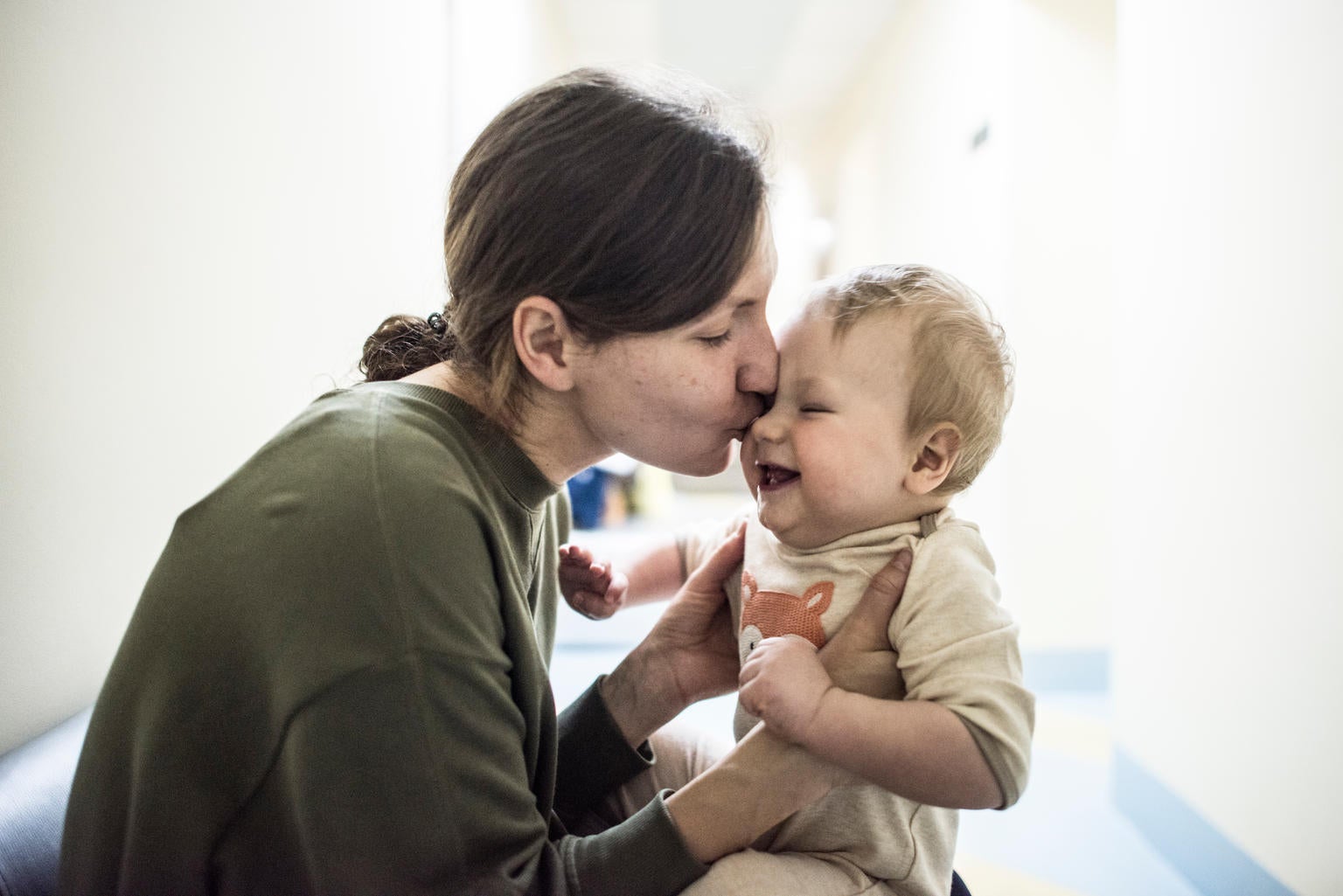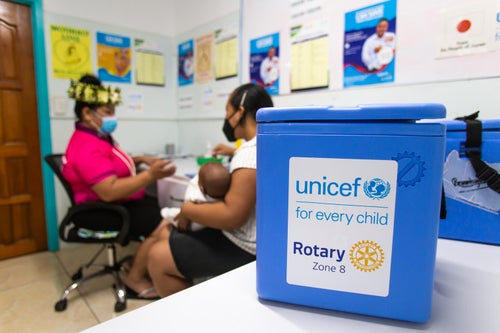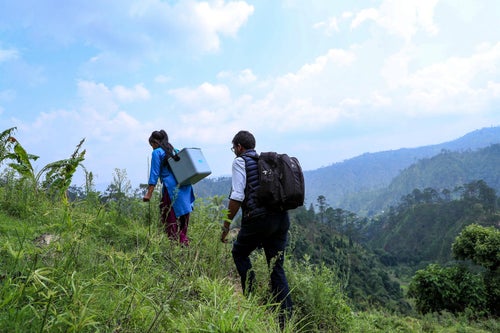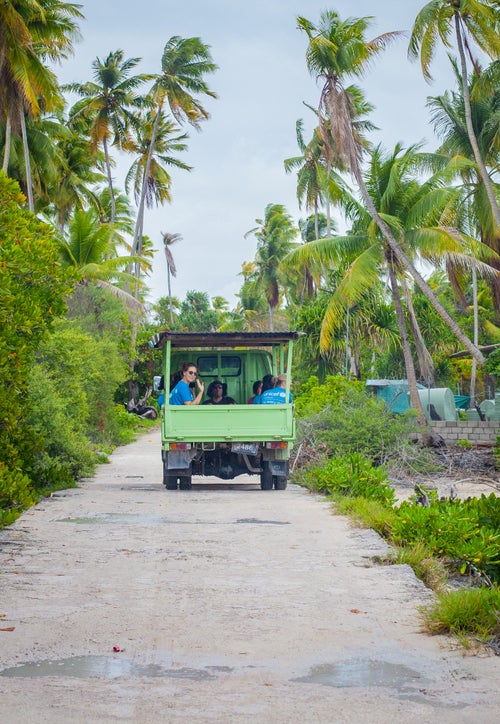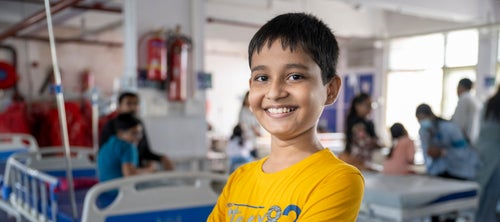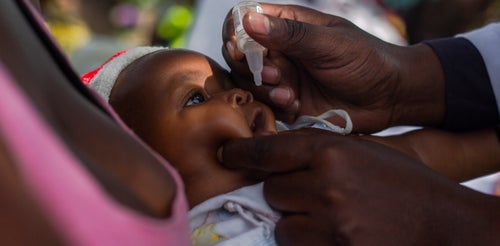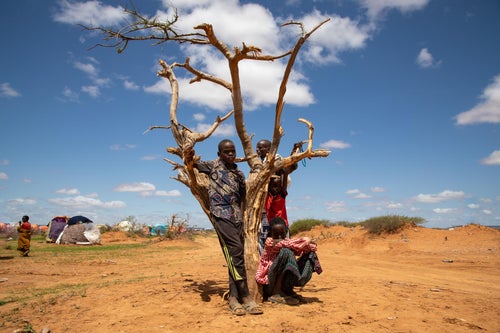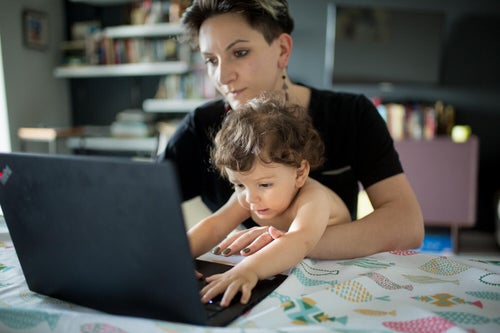These questions are not always easy to answer, especially if you have questions about vaccines yourself, and there is often misinformation circulating in our communities. But being upfront and honest with children about vaccines in an age appropriate way is important and can help relieve everyone’s anxiety.
Here are our top tips and some answers to your little one’s most frequently asked questions.
1. Educate yourself so you can put your kids at ease
You’re already on your way there by reading this page. This parenting masterclass video from our vaccine expert and pediatric nurse, Dr. Shannon McDonald, is a great way to start. It lays out information about vaccines in kid friendly language and is full of helpful hints which make taking your little one for their shots as stress free as possible.
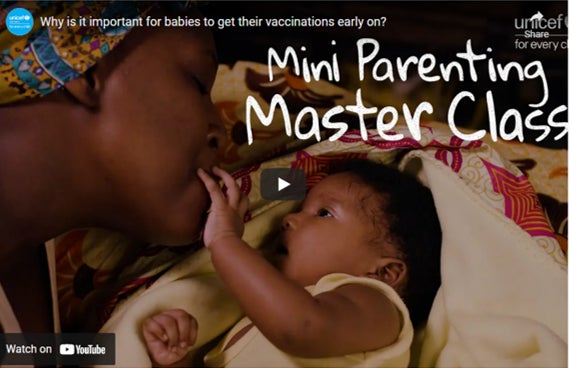
Why is it important for babies to get their vaccinations early on?
UNICEF interviews Paediatric Nurse Dr. Shannon MacDonald, on the importance of vaccines for children and answers some of the most common questions parents may be wondering.
2. It is never too early to start talking about vaccines
It may sound silly but talking to your children about the process of vaccination from their very first shots (yes, on day one when they get their first Hep B shot), can help you and them feel more comfortable and less anxious as they get older. It might not help them on day one but it will certainly make a parent feel better about causing their newborn that small but sharp pain.
Once the child is a little older, we like to start by praising the body’s incredible immune system which protects a child from harmful bacteria and viruses saying something like “the body is very smart and strong. Once it meets a bug, it learns how to beat it and remembers how to stop that bug making us sick next time.”
It can also be helpful to relate vaccines to medicines a child is familiar with by saying something like “vaccines are like medicine that stops us getting us sick in the first place.”
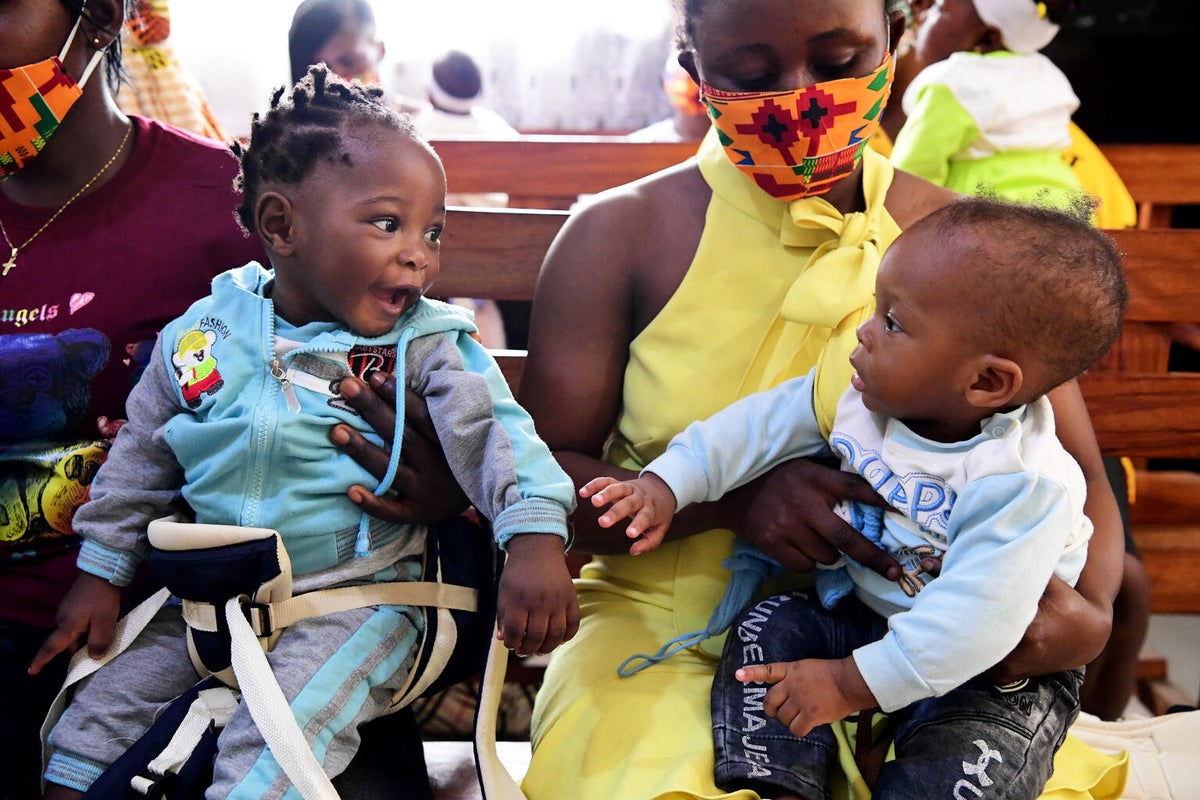
3. Acknowledge the pain but put it into context and focus on the positives!
When talking to children about vaccinations, we need to be honest about the pain. You can say something like “the needle will hurt but it will only hurt like a sharp scratch and will only last for a second”. Depending on the age of the child, it can be useful to discuss the illnesses the vaccines protect against, and how lucky they are to be protected from them.
Reassure them that they are incredibly brave. Depending on the age of your child, you could liken getting a vaccine to having a superhero shield against disease.
The parents in our team have found that phrases like “now you’ve got a special shield against disease!” or “Aren’t you lucky that you got your vaccines so now you won’t get sick with the flu?” work great as words of encouragement. The goal is that they understand that getting a vaccine is much better than getting the disease, even if it does hurt, or even make them cry for a few seconds.
For children who are extremely sensitive to pain, there are creams and patches available to numb the skin before a shot. These can be obtained from your GP after a quick consultation.
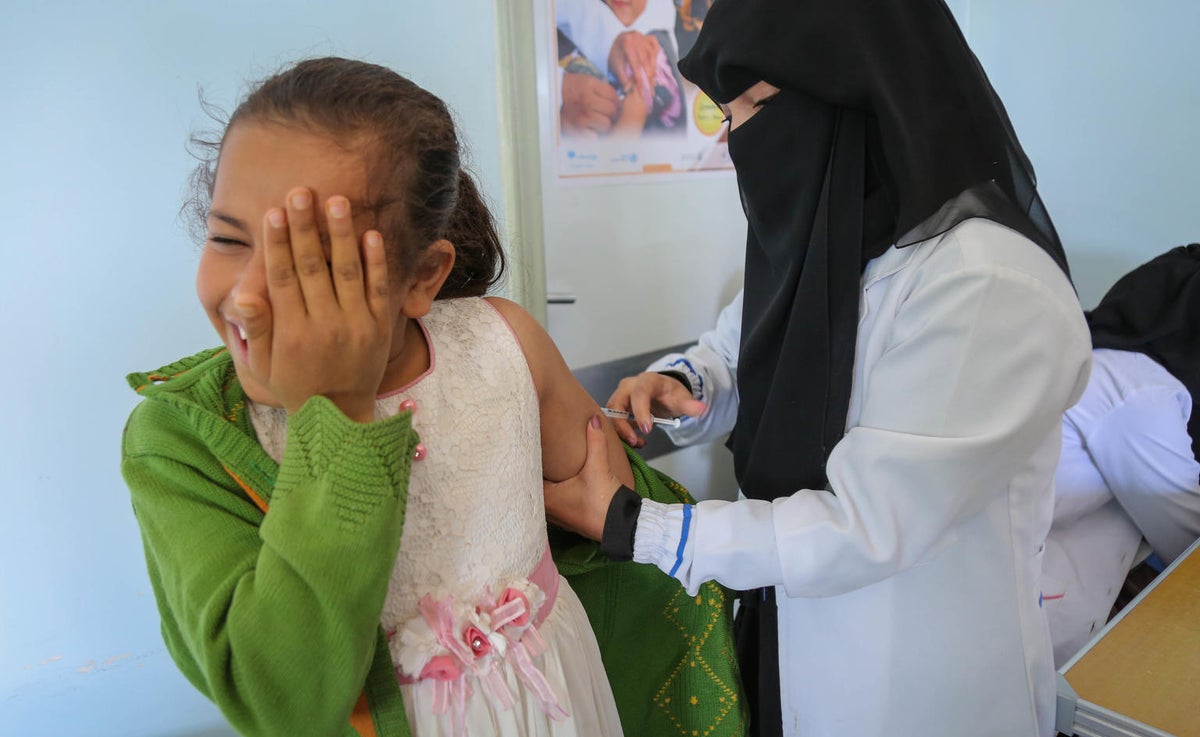
4. Be honest about what they can expect
If your child will soon be due for their shots, make sure that they know it is coming before the arrive at the clinic or doctor’s surgery. It doesn‘t have to happen too far ahead of time but there should not be any surprises when it comes to getting vaccines. Pretending that you’re heading out to visit grandma when you’re really taking your child to the doctor for shots can create last minute panic and anxiety.
If you’re honest, even if they’re scared about it, at least they will know what to expect and will hopefully realise that it wasn’t so bad afterwards.
Parents in our team find that giving children something to look forward to after the jab can help. Bribery is absolutely okay when it comes to encouraging children to have their vaccines. There's nothing like an ice cream or a play in the park to turn a bad day around!
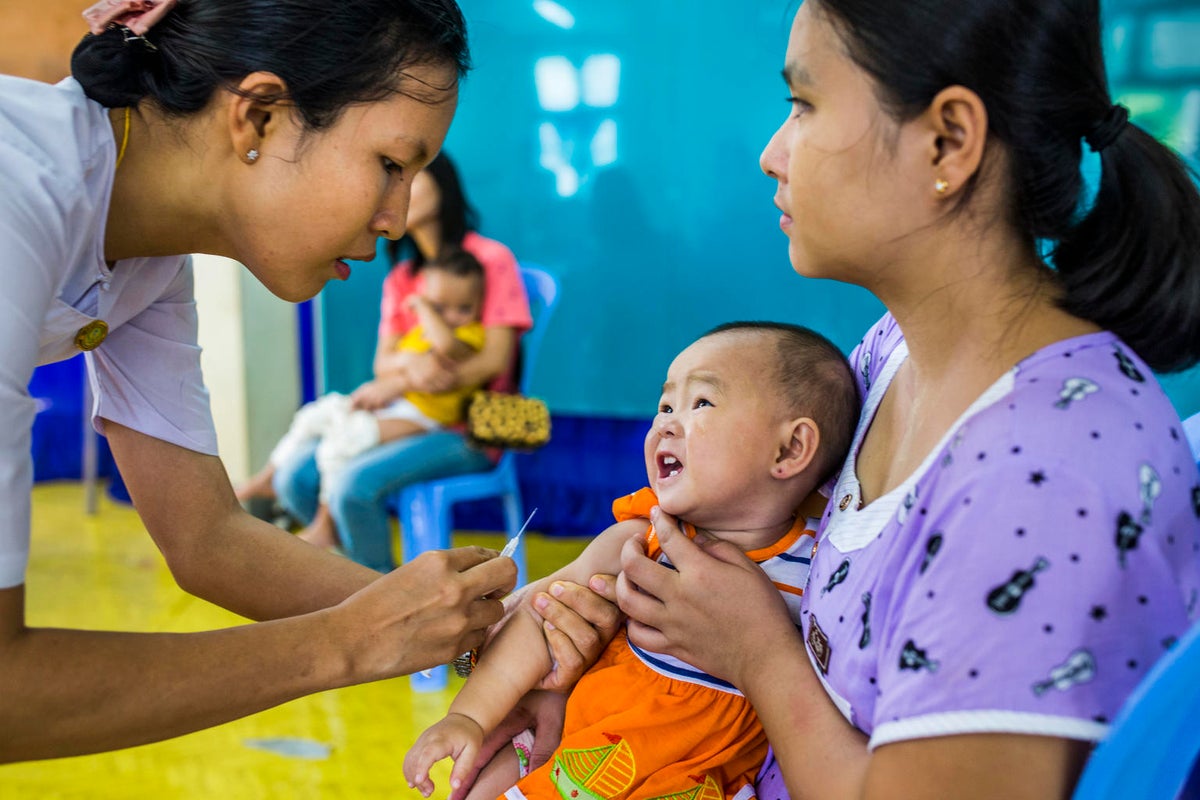
5. Listen and respond to their questions!
It’s very important children have a right to truthful information about what’s going on in the world, but adults also have a responsibility to keep them safe from distress. Use age-appropriate language, watch their reactions, and be sensitive to their level of anxiety.
If you can’t answer their questions, don’t guess. We’ve answered some of the common questions asked by children below but if their question is not answered here and you don’t know the answer, use it as an opportunity to explore the science together. Our website, as well as that of the World Health Organization are great sources of information.
Explain that you’ll take their question away and find out the answer from the experts. Encourage them to keep coming to you with their questions and that you’ll always be there to help them with anything they’re worried about.
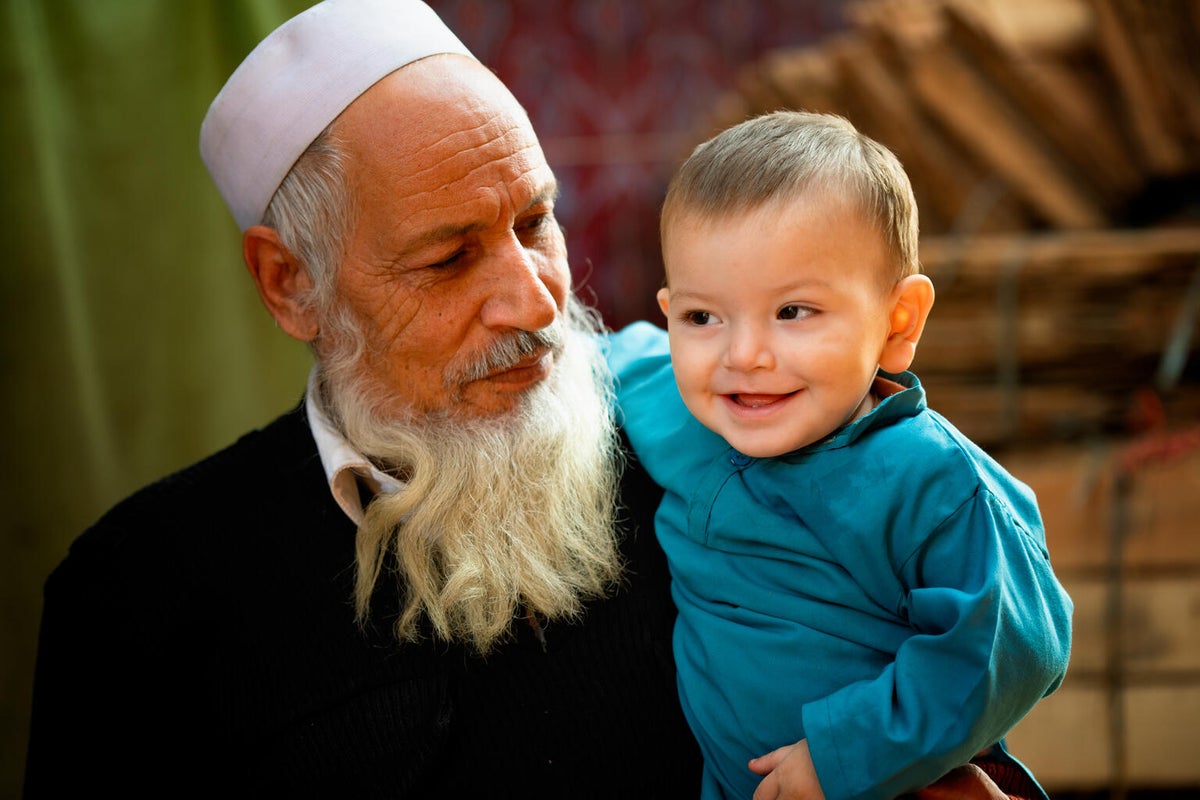
Child-friendly FAQs
A vaccine is a type of medicine that stops you getting sick in the first place. It does this by teaching your body how to fight off bugs like bacteria and viruses. They are a bit like the helmet you wear when riding your bike. If you fall off, the helmet will protect you and make sure you don’t hurt yourself too much. Vaccines prepare your body for the disease so if you should happen to encounter it out in the world, it is quickly defeated.
There are two main reasons:
Firstly, the diseases that vaccines protect you against can make you really sick and can even mean you need to go to hospital. Vaccines prevent lots of serious illnesses, so you can keep going to school, playing sport and doing all the things you enjoy.
Secondly, when you get the vaccine, it’s not only you that is protected but also the people around you. Vaccines stop you getting sick and passing on the sickness to those who haven’t had the vaccine. This includes tiny babies who are too young to have the vaccine as well as those who are sick with something else that means their immune system isn’t working properly. Having the vaccine is an act of kindness that protects us all.
It sounds weird, but vaccines actually put a bug, or a tiny piece of a bug, in your body to teach it how to protect you from that bug in the future! The bug can’t make you sick because it’s either not alive anymore or has been weakened but the body reacts to it just like it would the real thing and learns how to beat it. After that, the body remembers what the bug looks like and is able to beat it again without you falling sick or noticing that anything is wrong.
Yes. Vaccines are very safe. Millions of kids (and adults!) get vaccines every year. Sometimes kids may get a fever, some achy muscles or a sore arm but these are signs that the vaccine is working and the immune system is building the soldiers the body needs to protect from disease in the future.
Vaccines are safe and effective way to protect children (and adults) against diseases.
When you are vaccinated it's not only you who gets protected against disease. You are also protecting your community. For many infectious diseases, when a big enough proportion of a population is vaccinated, infectious diseases are unlikely to spread – this is known as ‘herd immunity’. But if people are not vaccinated, diseases that are uncommon in some areas can quickly reappear.
Related articles
Stay up-to-date on UNICEF's work in Australia and around the world



